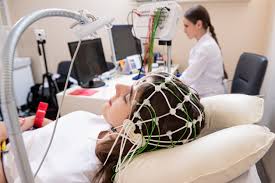Scientists Uncover How Brain Strengthens Memories During Sleep, Offering Hope for Memory Impairment

Researchers from Tel Aviv and California have made a significant breakthrough in understanding how the human brain strengthens memories during sleep. The findings hold promise for individuals suffering from memory impairments, including dementia.
Led by Dr. Maya Geva-Sagiv, currently at the University of California, Davis, in collaboration with Professors Yuval Nir of Tel Aviv University and Itzkak Fried of TAU and UCLA, the study reveals that memory consolidation during sleep involves coordination between the hippocampus and frontal cortex. Furthermore, the researchers were able to enhance memory consolidation by utilizing deep-brain stimulation techniques during sleep.
The research, published in the peer-reviewed journal Nature Neuroscience, sheds light on the mechanisms behind memory consolidation during sleep and provides potential avenues for therapeutic interventions.
To test their hypothesis, the team implanted electrodes in the brains of 18 epilepsy patients, enabling advanced brain stimulation techniques to be employed. By using a specialized stimulation protocol, they improved synchronization between the hippocampus and frontal cortex, enhancing memory consolidation.
The hippocampus is responsible for acquiring new memories, while the frontal cortex is where long-term memories are stored. By monitoring hippocampal activity during sleep, the researchers were able to deliver precise electrical stimulation to the frontal cortex, thereby boosting memory consolidation.
The participants underwent two memory tests, one after a normal undisturbed night’s sleep and another after receiving deep-brain stimulation during sleep. In the morning, they were asked to recognize pictures of famous individuals they had been shown the previous evening. The results demonstrated that deep-brain stimulation significantly enhanced the accuracy of their memory.
Interestingly, the researchers found that the intervention did not significantly increase the number of correct answers from the participants. Instead, it reduced the number of incorrect responses, suggesting that sleep helps sharpen memory accuracy by eliminating distractions from the relevant memory trace.
Dr. Geva-Sagiv highlighted the significance of the study, stating, “We know that a good night’s sleep is crucial for the consolidation of long-lasting memories, but until now, we had limited evidence about the specific processes at work in the human brain during sleep.” She further explained, “Our objective was to enhance the natural mechanisms involved and gain a deeper understanding of how sleep aids in stabilizing memories.”
These findings provide valuable insights into the intricate workings of memory consolidation during sleep and offer hope for developing new interventions to address memory impairments, including those associated with dementia. The research opens up possibilities for future studies and potential therapies aimed at improving memory function in individuals with cognitive disorders.


















Facebook Comments